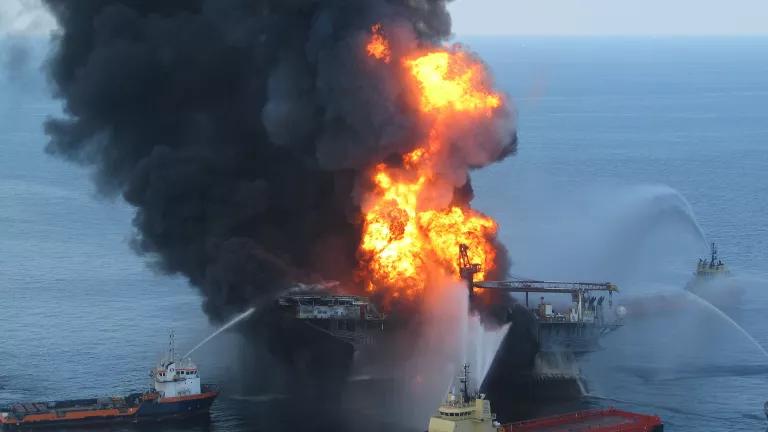NASA's James Hansen: Tar sands is the "dirtiest of fuels" and "game over for the climate"
James Hansen, Director of the NASA Goddard Institute for Space Studies, made another appeal this week to end our reliance on tar sands oil or it will be “game over” for the climate. If we continue to approve pipelines bringing in the dirtiest of fuels like tar sands he said, “there is no hope of keeping carbon concentrations below 500 p.p.m. — a level that would, as earth’s history shows, leave our children a climate system that is out of their control.” The production of tar sands oil has three times the global warming emissions as conventional oil production. Hansen rightly cautions that turning to these “dirtiest of fuels” for our gas tanks derails efforts to reduce our dependency on climate-changing fossil fuels.
While Hansen acknowledges the devastating climate ramifications from tar sands are a long-term outlook, one only has to look at today to realize global warming is here and already causing significant problems. Last year, record-breaking extreme weather events tied to global warming threatened communities across the country causing more than $1 billion in property damage. Global warming poses one of the most serious public health threats facing the nation. “We can say with high confidence that the recent heat waves in Texas and Russia, and the one in Europe in 2003, which killed tens of thousands, were not natural events — they were caused by human-induced climate change” Hansen said.
Hansen doesn’t apologize for sounding apocalyptic because the reality is that deep carbon emissions reductions will be needed to counter these trends. To make these deep emissions cuts, we have no other choice than to reject expansion of tar sands and the extraction of other sources of dirtier, more destructive and more expensive forms of oil. As the world now approaches the end of cheap and easily accessible oil, the oil industry is now exploiting new sources of petroleum that were once uneconomical to extract. These so called “unconventional oils” are carbon laden, locked deeply into the earth and bound to sand, tar, and rock. Tar sands from Canada is one of these unconventional fuels - a very hard-to-reach dirty energy source that was left in the ground deep under the Boreal forests and wetlands for decades because it was too costly and energy intensive to remove.
Today, our growing addiction to tar sands and to oil more generally is taking America and the world away from making progress to combat climate change. This is not theoretical. Building the Keystone XL tar sands pipeline alone for example would wipe out the benefits of new EPA standards adopted that would cut greenhouse gas emissions from medium to heavy-duty trucks. Solve Climate News recently outlined how tar sands pipelines – existing and planned – are creeping on to the American landscape.
But Hansen reinforces a critical point: rather than making the obvious choice to reject these dirty and out-dated sources of oil, we are instead increasing the “addiction” building new tar sands pipelines. Building the Keystone XL tar sands pipeline for example is the equivalent of seven coal-fired power plants operating continuously or having 6.2 million cars on the road for 50 years. And this is just the climate emissions associated with one tar sands pipeline. The tar sands industry has longer term plans to expand their exploitation of tar sands from just over two million barrels a day to as much as nine million barrels a day in the coming decades.
Because the United States takes the vast majority of Canada's tar sands, we are in the driver’s seat determining whether tar sands becomes the energy of the future or a mistake of the past. What signal do we want to send? A recent paper from the Carnegie Endowment called for strong policies to ensure that these new unconventional oil do not have significant advantage over low-carbon alternatives. Hansen called for a carbon fee from fossil fuel companies distributed to Americans to spur a reduction in oil use. Regardless, Hansen suggests now is the time to signal a total rejection of tar sands in the name of protecting our climate.



